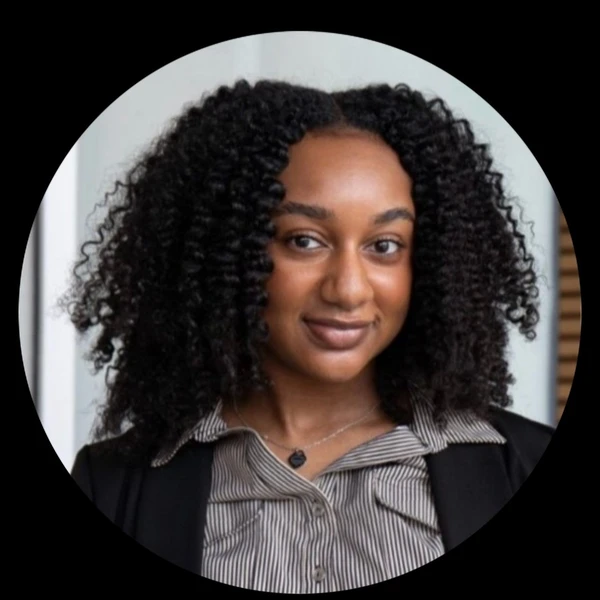
Casey Smith
445
Bold Points1x
Finalist
Casey Smith
445
Bold Points1x
FinalistBio
My name is Casey Smith, and I graduated from Muskingum University with a BA in Public Administration and Political Science in addition to a Master of Public Administration from John Glenn College of Public Affairs at The Ohio State University. I am an incoming 1L at Northwestern Pritzker School of law. I am interested in public interest law with a focus on reducing barriers for justice involved individuals facing reintegration back to society.
Education
Ohio State University-Main Campus
Master's degree programMajors:
- Public Administration and Social Service Professions, Other
Muskingum University
Bachelor's degree programMajors:
- Public Administration and Social Service Professions, Other
Miscellaneous
Desired degree level:
Doctoral degree program (PhD, MD, JD, etc.)
Graduate schools of interest:
Transfer schools of interest:
Majors of interest:
Career
Dream career field:
Law Practice
Dream career goals:
Student Intern
Carl B. Stokes Federal Court House Building2023 – 2023Social Science Student Trainee
Federal Deposit Insurance Corporation2024 – 20251 year
Sports
Basketball
Varsity2019 – 20223 years
Research
Public Administration and Social Service Professions, Other
Muskingum Unviersity — Researcher2022 – 2024
Justice Adolpho A. Birch Jr. Scholarship
Question 1: I have placed a seat deposit at Northwestern Pritzker School of Law.
Question 2: The intersection of criminal justice reform and economic policy is a critical area of law that has long been underexplored. While efforts around sentencing reform and decarceration have gained momentum, there remains a glaring gap in how the legal system addresses the economic realities faced by formerly incarcerated individuals. These challenges do not end when their sentence ends, instead it follows individuals into reentry and often persist for years. The result is a system that perpetuates cycles of poverty and destabilizes families. My father’s struggle to secure stable work after incarceration illuminated these issues for me. Watching him face stigma, instability, and economic hardship opened my eyes to a broader systemic issue that affects countless families across the country. Thus, in the short term I plan to complete my Pathway’s internship at the Federal Deposit Insurance Corporation (FDIC), where I have gained valuable experience in understanding financial inclusion. I ‘ve learned how to analyze data to better understand people’s interactions with financial institutions, and how thoughtful policy can encourage inclusion. In the long term, I aspire to work in the field of consumer protection law as a civil rights attorney, focusing on policies that promote economic inclusion and eliminate predatory practices that harm underserved populations.
Question 3: Outside of formal education, I actively seek opportunities to grow intellectually and engage with different perspectives. One of the most formative experiences I have had in this regard was my volunteer work at the Breaking Free Riding Center in Muskingum County, Ohio. This rural, conservative area was unlike the urban environment I was raised in, and my time there exposed me to people with vastly different worldviews. The center focused on providing equine-assisted therapy to individuals facing emotional and developmental challenges, and in that shared goal, I found common ground with people I might never have otherwise connected with. As a Black woman from a large city, I sometimes found the political and cultural beliefs of those around me to be deeply different from my own. However, instead of withdrawing, I leaned in. I chose to listen and ask questions, challenging myself to think critically about my own beliefs. This kind of intellectual humility has shaped the way I think about the law. Legal advocacy requires not only knowledge, but the ability to listen, build coalitions, and find solutions in unlikely places.
Question 4: During a classroom discussion at Muskingum University about white supremacy, I found myself in a difficult and deeply isolating position. As I challenged another student’s views, the conversation intensified. When I turned to face him directly, he accused me of being angry, a coded comment meant to discredit and silence me. The class giggled, and I felt embarrassed and dismissed. When I sought reassurance from another Black student, he too brushed me off, telling me not to be so sensitive. In that moment, I internalized the idea that speaking out was unsafe, that my passion would always be misread as aggression.
However, that experience planted a seed. I later joined the Black Student Union and, eventually, became its President. I used my platform to support students who felt marginalized and unheard. One conversation with a younger student who was considering transferring after being the subject of a racist joke jolted me into action. I realized that my silence might make me more comfortable, but it would do nothing to protect others. I took on leadership roles, organized meetings with campus police, supported diversity training initiatives, and advocated for the creation of a multicultural room in a building once funded by the KKK. These efforts transformed our campus climate and grew our support network. Through that experience, I learned that sensitivity is not a weakness. Instead, it is a powerful form of empathy that fuels change.
Question 5:
If I had the resources to create a philanthropic initiative, I would focus on supporting the families of incarcerated individuals. Incarceration does not only affect those behind bars, but entire households. My initiative would offer financial assistance to cover essentials like rent, utilities, and childcare. It would also provide mental health services, legal guidance, and educational support for children with incarcerated parents. Too often, these families are collateral damage in the criminal legal system. By investing in their well-being, we can interrupt cycles of poverty and trauma and begin to build a more just and compassionate society.